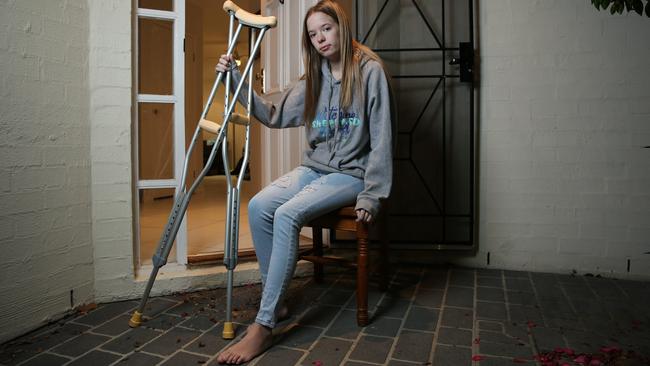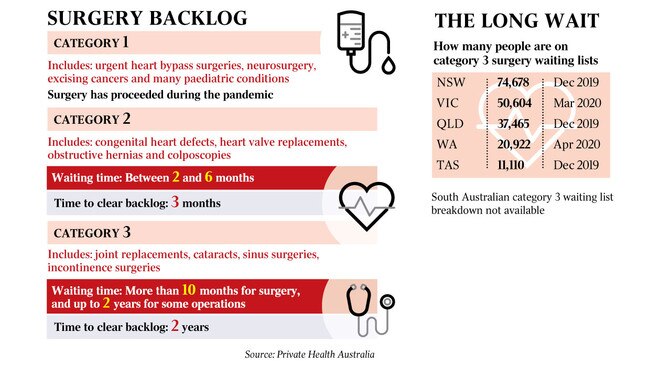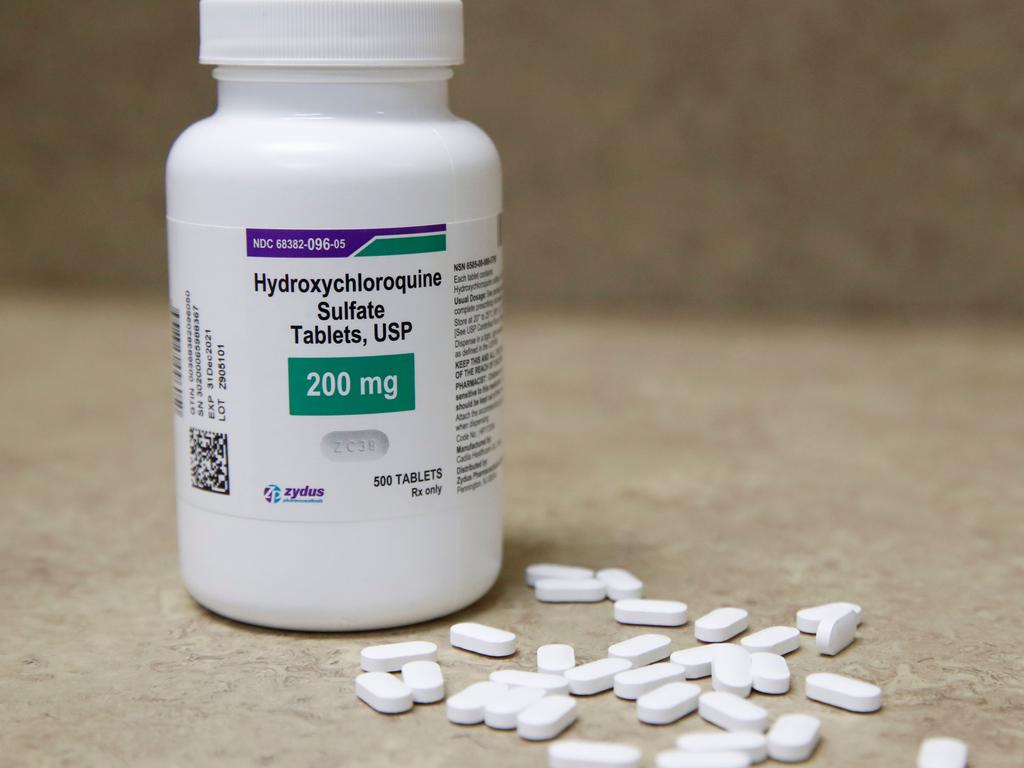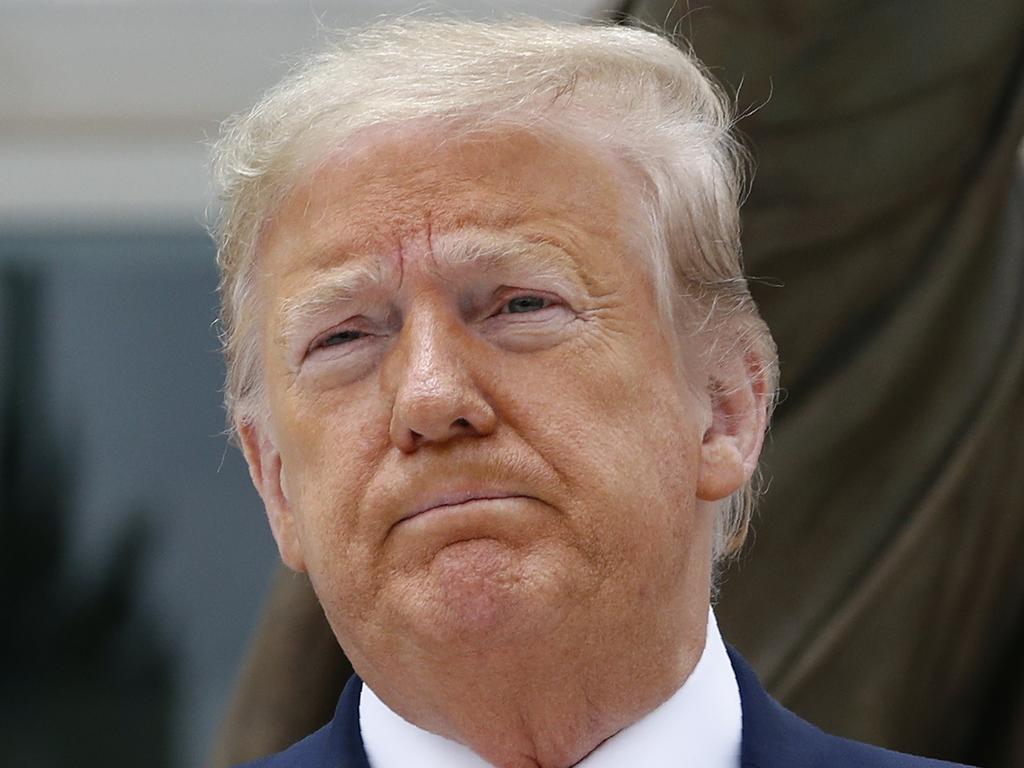The second wave: how hospitals are keeping theatres closed to save money
Surgeons accuse administrators of using the pandemic as cover to slash budgets and allowing operating theatres in public hospitals to sit idle while patients wait in pain.

Surgeons are accusing health administrators of allowing operating theatres in public hospitals to sit idle while patients wait in pain for elective surgery as waitlists blow out.
An explosive memorandum by the director of the pelvic floor unit at Westmead Hospital, Jenny King OAM, claimed health district executives were using the COVID-19 pandemic as cover to slash budgets. “I know all of us have concerns about limitations on our ability to adequately care for our patients,” Dr King wrote to fellow surgeons. “While this has been understandably exacerbated during the coronavirus restrictions, it seems that this is continuing to be used as an excuse to minimise elective surgery.
“Twice in the last week, the chief executive (of the Western Sydney Local Health District) has claimed we are performing 70 per cent of elective surgery cases with further increases planned by the end of the month. This is inaccurate. In Women’s Health, we are operating at under 50 per cent of our previous level and I understand some specialties are only able to perform 25 per cent of necessary procedures.”
The WSLHD continued to insist on Thursday it was providing more than 70 per cent of pre-pandemic surgical sessions in its hospitals theatres. Public hospitals in NSW are supposed to be moving towards resuming 75 per cent of pre-pandemic activity levels by June 30. Victoria is following the same timeline, while other states have lifted all restrictions on non-urgent elective surgery.
On the NSW central coast, Rhian Smith, 16, has been waiting more than a year for knee surgery. It had been scheduled for March 27, but Gosford hospital called the day before it was to go ahead to say it had to be cancelled because of coronavirus restrictions.
Rhian said she now had to live with the risk that her knee might dislocate again when she walked or even slept. “They called the day before my surgery at 4pm telling us it got cancelled because the government banned elective surgery.” she said.
Multiple surgeons in NSW have alleged that operating theatres are being underutilised in public hospitals, while some wards have not been reopened following arrangements put in place for COVID-19 to reserve hospital space for the pandemic.

One surgeon estimated that certain public hospitals in NSW were performing far below pre-pandemic elective surgery caseloads, with many operating theatres sitting empty.
“I’ve seen it,” said Michael Levitt, an adviser on the NSW state committee of the Australian Society of Anaesthetists. “Administrators have always managed to blow out waiting lists when the budget is under pressure and now they’ve got perfect political cover.”
The Australian Society of Orthopaedic Surgeons said that in early June, its members were reporting that elective surgery activity levels in public hospitals were “very low or hadn’t commenced”. It said activity had now ramped up, but there was still feedback from surgeons that operating theatres were underutilised.
Analysis by Private Healthcare Australia has estimated public hospital waiting lists for elective surgery will not get back to pre-pandemic levels until June 2022. Private hospitals will also struggle to catch up, with patients expected to experience delays in accessing surgery until March next year, instead of the usual 14-day wait.
“There are people who will turn up to hospital now with a problem who will not be getting their surgery for more than two years,” said PHA director of policy and research Ben Harris.
In western Sydney, Janice Lesslie, 81, has also been waiting for more than a year to have her category 3 hip replacement at Nepean Hospital. Her operation was due to be scheduled in March or April, but she now has no idea how long she’ll have to wait.
“The pain has got worse and I have difficulties getting off a chair,” she said. “Trying to get into bed with my hip is hard.”
Western Sydney general surgeon Richard Hanney said he had been unable to book patients for surgery based on urgency, and surgery bookings were being centrally controlled by the local health district. Many patients were unable to secure surgery bookings.
“It appears that NSW public patients requiring elective surgery are being treated as second-class citizens, and their doctors are being treated with contempt,” Dr Hanney said. “The staged return to elective surgery is one of glacial slowness. Government bureaucrats should now move aside, and allow doctors and Medicare to look after the community, as they are intended to do.”
Crisis talks have been called by Blacktown Mount Druitt Health general manager Ned Katrib to try to placate angry local surgeons. The surgeons will raise what they allege is pressure being placed on them to prevent elective surgery cases “breaching” waiting list timeframe targets.
“Well before COVID-19 came on the scene, we struggled on a daily basis to provide the surgical services our patients need,” Dr King’s memo said. “Managing emergency patients and minimising cases which breach may make our dashboard look good and allows the bureaucracy to self-righteously declare we are managing cases ‘based on clinical need’.
“Limiting elective surgery undoubtedly saves money but none of these measures serves our community. It is not acceptable to continue to hide behind COVID-19.”
The WSLHD disputed claims it was underutilising theatres, saying it had “already resumed over 70 per cent of elective surgery activity” in its hospitals, aside from Mount Druitt, which was operating at 50 per cent of elective surgeries. It said in a statement it was “well progressed” towards the resumption of 75 per cent of elective surgery cases by 30 June.
“We confirm Western Sydney Local Health District is now providing more than 70 per cent of the previous surgical sessions in our theatres,” a spokesperson said.
NSW Health said all local health districts were working towards increasing elective surgery to 75 per cent by June 30 but a full return to elective surgery was being balanced with “preparation for further COVID cases” to ensure there was enough capacity to manage the pandemic.
Public hospitals in Victoria said they met their target to ramp up elective surgery levels to 50 per cent of normal levels by the end of May.
Queensland hospitals in the metro north and south, including the Royal Brisbane and Women’s Hospital and the Princess Alexandra Hospital, said they were targeting a July return to 100 per cent.







To join the conversation, please log in. Don't have an account? Register
Join the conversation, you are commenting as Logout